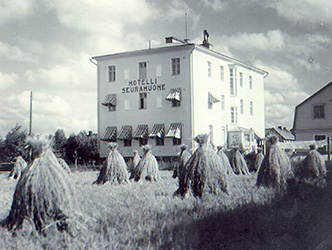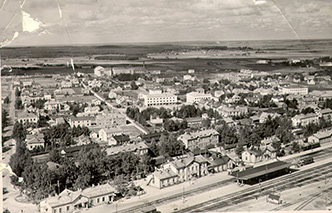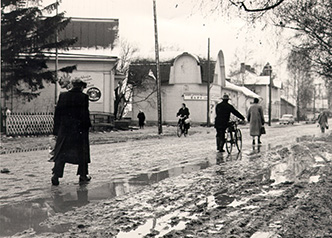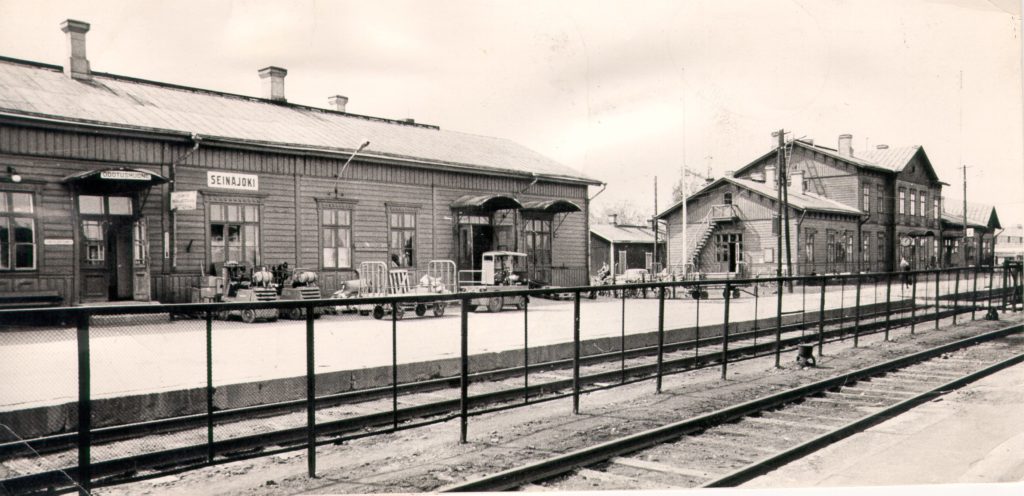History
The first mentionings of the village of Seinäjoki are from the end of the 1550s. There were houses in the land register in Seinäjoki, but from the administrative viewpoint the area belonged to the parish of Ilmajoki. In 1798, the foundry/iron works of Östermyra were founded and, as a result, new industry and agriculture developed in the surrounding area.
The independent municipality of Seinäjoki was founded in 1868. The neighbourhood of the station was given the status of a limited self-governing community, and the centre of the settlement moved from the Östermyra area (the present Törnävä area) towards this station area. In the 1880s, the building of the railway triggered off a strong development which created opportunities for business and for the placing of regional institutions (such as the hospital) in Seinäjoki.
The municipality of Seinäjoki was divided into the borough and the rural municipality in 1931, widening the community of the station area. After the war, in the late 1940s and in the 1950s, migration to the borough increased, and with the improvement of traffic connections, economic life became more varied. In 1959, the rural municipality and the borough were merged into one, the borough of Seinäjoki. The densely populated area formed a total of only 10 km2 while the surrounding rural area was 11 times larger. In 1960, Seinäjoki was granted the city charter. Since then, the population of Seinäjoki has multiplied rapidly and the services have diversified.
The city of Seinäjoki was enlarged in 2005 when the municipality of Peräseinäjoki was consolidated with the city of Seinäjoki. Simultaneously, the villages of Lehtimäki, Honkakylä and Ojajärvi of the municipality of Ilmajoki were merged into the city. On 1st January 2009, another consolidation took place when the municipalities of Nurmo and Ylistaro and the city of Seinäjoki merged into one, forming the new city of Seinäjoki with over 56 000 inhabitants.
Seinäjoki has a strong status as the regional centre of South Ostrobothnia. Heavy investments in education and future development have opened new horizons for the whole South Ostrobothnian region.



